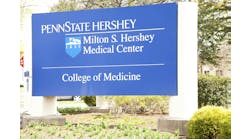Pilots Seek to Address Barriers to Diversity in Clinical Trials
The Pharmaceutical Research and Manufacturers of America (PhRMA) is partnering with three leading medical schools on an initiative to enhance diversity in clinical trials.
PhRMA said it is joining with Yale School of Medicine, Morehouse School of Medicine, the Research Centers in Minority Institutions Coordinating Center at Morehouse School of Medicine, and Vanderbilt University Medical Center on an initiative called Equitable Breakthroughs in Medicine Development.
Funded by a grant from PhRMA, the initiative will pilot a network of connected, community-based trial sites that brings together diverse communities, clinical trial sponsors, patients, providers, health partners, community organizations and academic institutions. This follows more than two years of PhRMA-led stakeholder engagement to assess barriers to clinical trial participation and identify tangible actions and goals that can make a difference.
“This new initiative builds on the industry’s continued effort and commitment to working toward more equitable access to clinical trials, so they better reflect the patients intended to be served,” said Stephen J. Ubl, president and chief executive officer of PhRMA, in a statement. “Supported by a grant from PhRMA, the initiative will be a sustained effort in partnership with community leaders to provide pilot sites with the resources they need to break down barriers and build successful, trusted clinical trial sites.”
This pilots will seek to address systemic barriers underserved patients often face when it comes to clinical trials, including a lack of outreach, patient mistrust and a lack of available sites in historically underserved communities. The community-based trial sites will:
- Partner with trusted messengers and community leaders to raise education, awareness, and support for clinical trial participation.
- Provide the resources and technical support for local sites to be successful and sustainable long term.
- Build training opportunities and mentorship for investigators and staff.
- Create a comprehensive, collaborative network of sustainable, connected, community-based sites supporting clinical trial diversity in underserved communities.
“Morehouse School of Medicine [MSM] and the RCMI Consortium are committed to increasing diversity and inclusion in clinical trials as we lead the creation and advancement of global health equity,” said Elizabeth Ofili, M.D., M.P.H., professor of medicine and principal investigator of the RCMI Coordinating Center at Morehouse School of Medicine, in a statement. “While this level of comprehensive collaboration is a first-of-its-kind initiative, it’s important to recognize that MSM and others have been working tirelessly on this issue for decades. We are honored and excited to be partnering with the community systems, providers, and the patients they serve, who are and always have been committed to inclusive clinical trials and medicine development. Their questions, feedback, insight, participation, and leadership will be crucial to creating and maintaining a sustainable proof of concept.”
“To ensure that clinical trial results are relevant and applicable across diverse populations, we must find new ways to ethically and effectively improve participation by people from diverse backgrounds,” said
In a statement, Peter Embí, M.D., M.S., chair of biomedical Informatics, and senior vice-president for research and innovation at Vanderbilt University Medical Center, said: “At VUMC, we are focused on advancing personalized health care for everyone and enabling equitable participation in clinical trials is essential to that mission. As a physician, researcher, and proud member of the Hispanic-American community, I recognize that we face many challenges in overcoming disparities in clinical trials and health care, and I am excited to partner with my colleagues on this critically important initiative. Through our collaboration, I’m confident that we will learn and implement new ways to overcome systemic barriers and improve the pace of ethical research for those who have been historically under-represented.”


